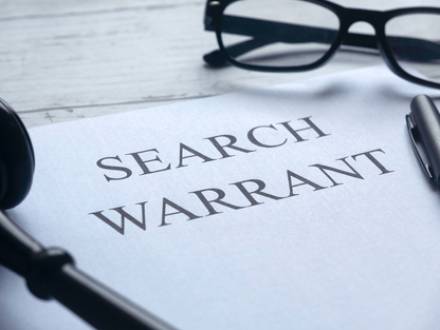When Can the Police Enter My Home Without a Warrant?
 Normally, the police need a warrant to enter your home over your objections. The general rule is that if you do not give the police permission to enter, they should not be able to come in without a warrant. However, there are a few exceptions to the rule. The police may be able to enter your home without a warrant or permission if there are exigent circumstances. Unfortunately, the police do not always use these exceptions in good faith. Some officers will stretch the truth or make unreasonable assumptions when they want to enter a home. If you were subjected to an unconstitutional search, an experienced Bel Air, MD criminal defense attorney may be able to have evidence gained from the illegal search suppressed.
Normally, the police need a warrant to enter your home over your objections. The general rule is that if you do not give the police permission to enter, they should not be able to come in without a warrant. However, there are a few exceptions to the rule. The police may be able to enter your home without a warrant or permission if there are exigent circumstances. Unfortunately, the police do not always use these exceptions in good faith. Some officers will stretch the truth or make unreasonable assumptions when they want to enter a home. If you were subjected to an unconstitutional search, an experienced Bel Air, MD criminal defense attorney may be able to have evidence gained from the illegal search suppressed.
The Hot Pursuit Exception
If the police are actively chasing a suspect, they can continue chasing him when he enters a private residence. Otherwise, anyone running from the police could easily evade arrest by simply fleeing into someone’s home. This could result in stand-offs while the police wait for the suspect to come out or give fleeing suspects the opportunity to pick up a weapon while the police stand outside.
The Good Faith Mistake Exception
If you have ever gone up to a stranger’s door by mistake while looking for a friend’s house, you have experienced how easy it is to go to the wrong address. Police sometimes make similar errors. If they do not know the layout of an apartment complex, they may well start searching Apartment 103 in Building C by accident when they had a warrant for Apartment 103 in Building D. If they do happen to find incriminating evidence in Building C, they may be able to use it against the occupant.
The Active Danger Exception
Police can generally enter a residence if they reasonably believe that someone inside is in imminent danger. This exception permits police to enter homes in response to many domestic violence calls when there may be a victim inside who needs immediate help but cannot get to the door to invite the police inside. Police may also use this exception if they believe someone is overdosing on drugs.
The Destruction of Evidence Exception
If the police have good reason to believe that someone inside is actively destroying evidence of a crime, they may be able to enter in order to preserve the evidence. For example, if the police come to your home because there were reports of you using drugs inside and they hear the toilet flushing repeatedly, they may believe that you are trying to flush the evidence and come in.
Contact a Bel Air, MD Fourth Amendment Attorney
Seger Law, LLC is committed to protecting your Fourth Amendment rights. Aggressive Baltimore County, MD illegal searches lawyer Chelsey Seger will fight to have illegally obtained evidence suppressed in your case. Contact us at 443-208-4692 for a complimentary consultation.


